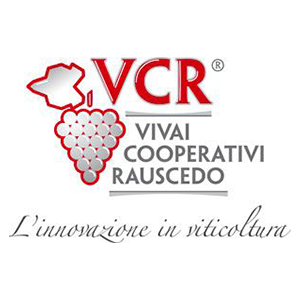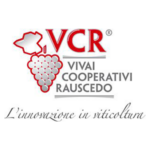
Empowering Students with Comprehensive Knowledge in Viticultural Nurseries, Genetic Improvement, and Sustainable Practices for a Resilient Viticulture Industry.

Website VIVAI COOPERATIVI RAUSCEDO S.C.A.
World-leading cooperative nursery in the grafted-vine market.
About the Company :
Name of the company :VIVAI COOPERATIVI RAUSCEDO S.C.A.
Type of organisation : Grapevine Nursery
Field of activity :Grapevine nursery, viticulture, oenology
Location :Rauscedo, Pordenone | Italy
What are the main commitments of your company?
Breeding, sustainability, innovation, smart viticulture
Minimum education requirements : Degree in viticulture and oenology and/or agriculture and/or molecular biology
Required languages spoken :
English
Position summary :
Short Description of the company / lighthouse farm :
Vivai Cooperativi Rauscedo (VCR), founded in 1933 in the heart of North-Eastern Italy, is a world-leading cooperative nursery in the grafted-vine market. Globally renowned for the high quality of its plants, VCR boasts over 500 proprietary clonal selections of 144 scion varieties and 10 rootstock varieties. With a production of approximately 5,000 rootstock/scion/clone combinations, VCR distributes 80 million grafted vines across 30 countries.
VCR collaborates with prestigious partners in France (VCR France), the United States (NovaVine), and Australia (Chalmers Nurseries), producing and selling vines from VCR clones worldwide. In 1967, VCR established a 30-hectare experimental farm, featuring comparison fields for the evaluation and registration of clones and varieties, as well as a cellar for assessing the oenological potential of clones, with a capacity of over 800 micro-vinifications.
In 2019, VCR inaugurated the new VCR Research Center (VCR-RC), a hub of excellence with 8 state-of-the-art laboratories dedicated to research, diagnostics, and micropropagation. The VCR Research Center is equipped with cutting-edge facilities and equipment for vine propagation, vineyard management and monitoring, a cellar, and a wine station for chemical analysis of berry and wine compounds. The VCR Research Center laboratories provide support for micropropagation and tissue culture activities, molecular biology, microbiology, virology and stereoscopy.
Any accomodation offered :
The VCR offers students the possibility to stay at the guesthouse located within the VCR Research Center, which is situated in an agricultural area. It is recommended to have a car to quickly access the nearest urban centers.
Internship description (the tasks, responsibilities, benefits) :
Students will have the opportunity to learn and deepen their knowledge about viticultural nurseries. This includes vine multiplication and propagation techniques, as well as the regulations governing the commercial exchange of nursery material between countries. Additionally, they will participate in genetic improvement activities aimed at both traditional grape varieties and new varietal constitutions. The primary objective is to ensure that viticulture remains sustainable and adaptable in response to evolving market and environmental conditions.
Students can apply this knowledge in several practical ways:
- Viticultural Nurseries: By learning about vine multiplication and propagation techniques, students may find opportunities to work in or assist with nurseries.
- Regulatory Compliance: Knowledge of the regulations governing the commercial exchange of nursery material is crucial for ensuring that all activities comply with international standards, which is essential for businesses involved in the global trade of viticultural products.
- Genetic Improvement: Participating in genetic improvement projects allows students to contribute to the development of new grape varieties that are more resilient to diseases, pests, and changing climate conditions. This can lead to more sustainable and productive vineyards.
- Sustainability Practices: By focusing on sustainability, students can implement practices that reduce the environmental impact of viticulture, such as reducing water and chemicals usage and promoting biodiversity.
- Adaptability to Social and Environmental Changes: Understanding how to adapt viticulture practices to changing market and environmental scenarios ensures that the industry remains viable and responsive to future challenges.
- Research and Development: Students can engage in research to further advance the field of viticulture, contributing to scientific knowledge and innovation.
These applications not only enhance their career prospects but also contribute to the overall advancement and sustainability of the viticulture industry.
Job Details :
Duration of the internship :
1-3 months/application
Period :
From May to October 2025
The period of attendance at the VCR-RC can be continuous or occasional, in both cases not less than one month per attendance
Application deadline :
Salary :
Non provided
Weekly Workin hours :
39 hours
To which pillar of the project can the internship be associated ?
